My wife shouted, Come and help, the gecko is eating himself :)
Women can be very humorous at times methinks, but dutifully I obliged.
So let me explain in here what happened.
Happily, the gecko was eating all of his old skin!
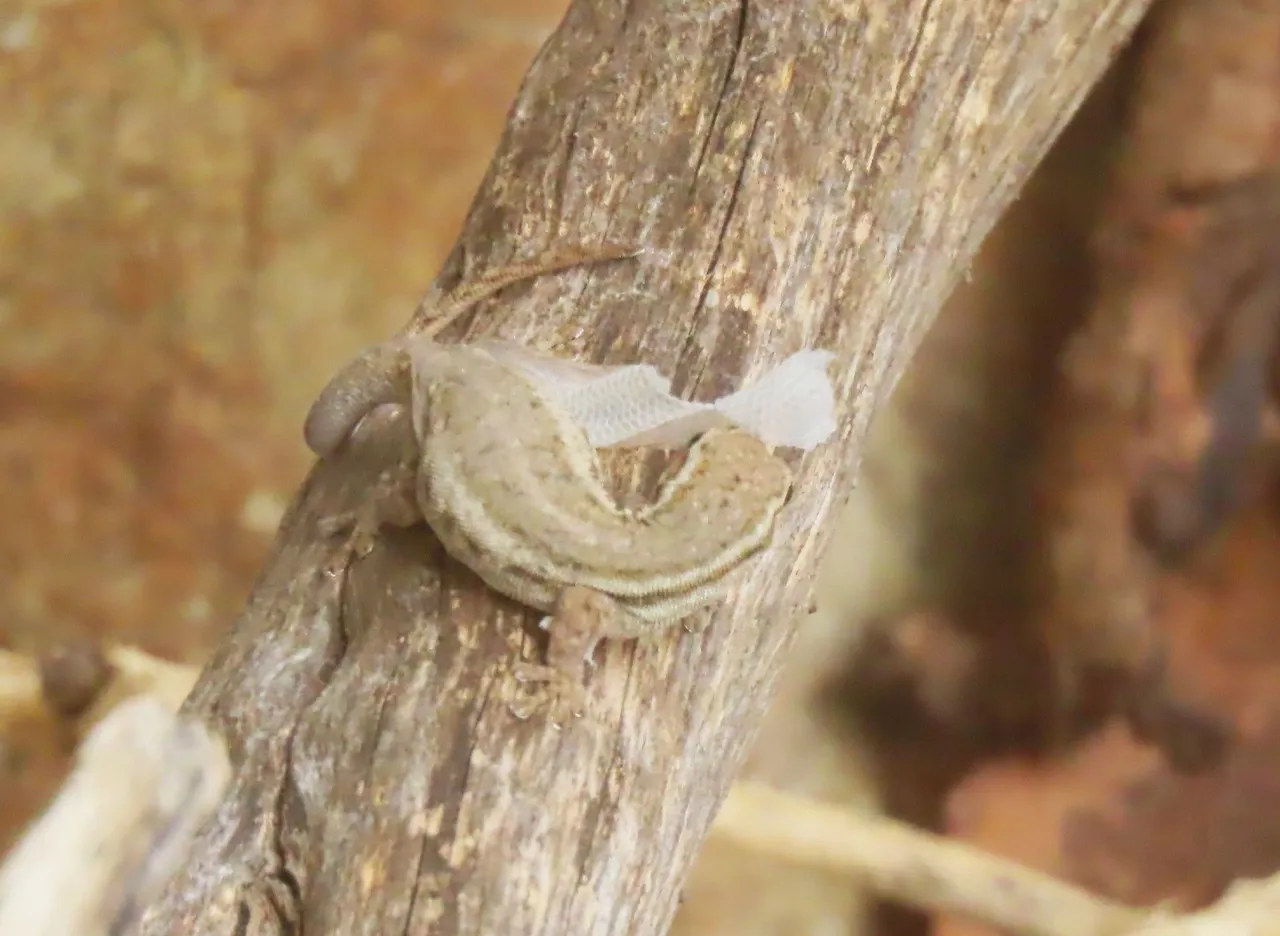
Everything in nature has a purpose and the gecko was in a molting stage.
But why would gecko's eat the old skins that they shed?
I have some scary news for you at the end of the post!
The skin shedding is essential for regeneration and growth of the gecko.
It actively assists the molting/shedding process by detaching old skin and eating it. The old skin contains important minerals that results in the rejuvenation of the new skin layers. By consuming the old skin, the gecko does not leave a trail for predators. It also helps for them to blend in with their surroundings, to camouflage them against attacks.
Source
This is a Cape Dwarf Gecko (Lygodactylus capensis) and we have plenty of them in our garden.
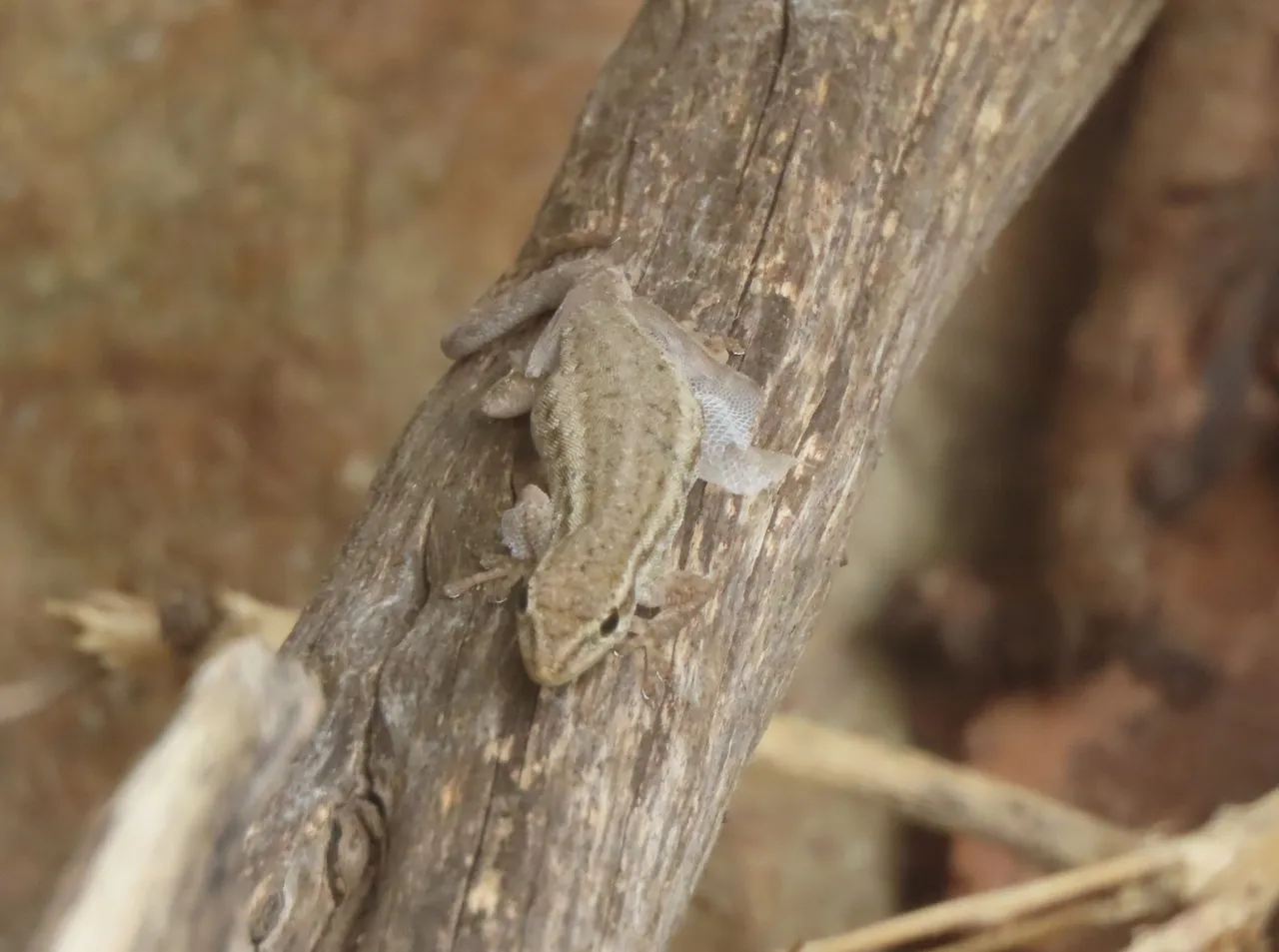
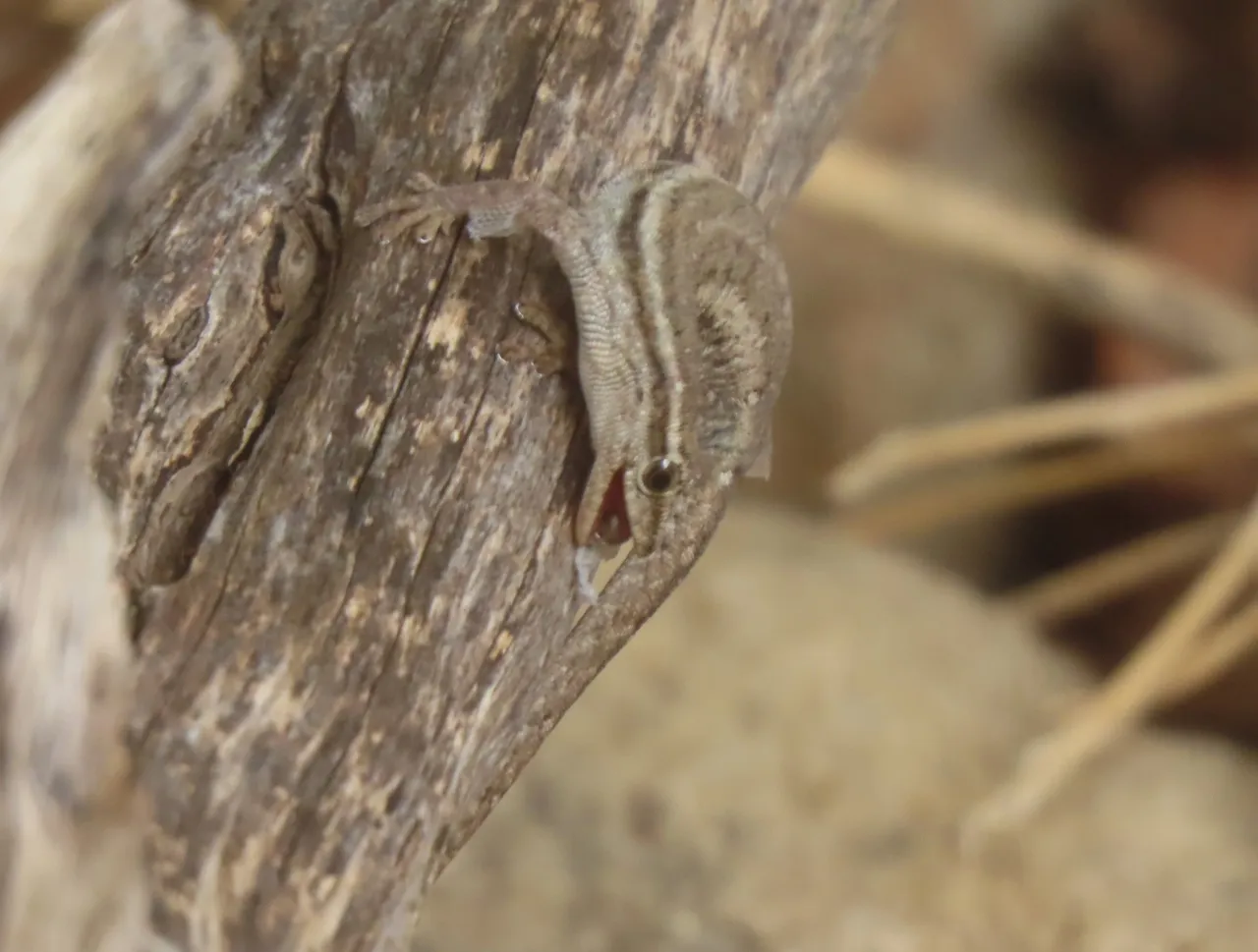
Did you know that the latin word natura means birth?
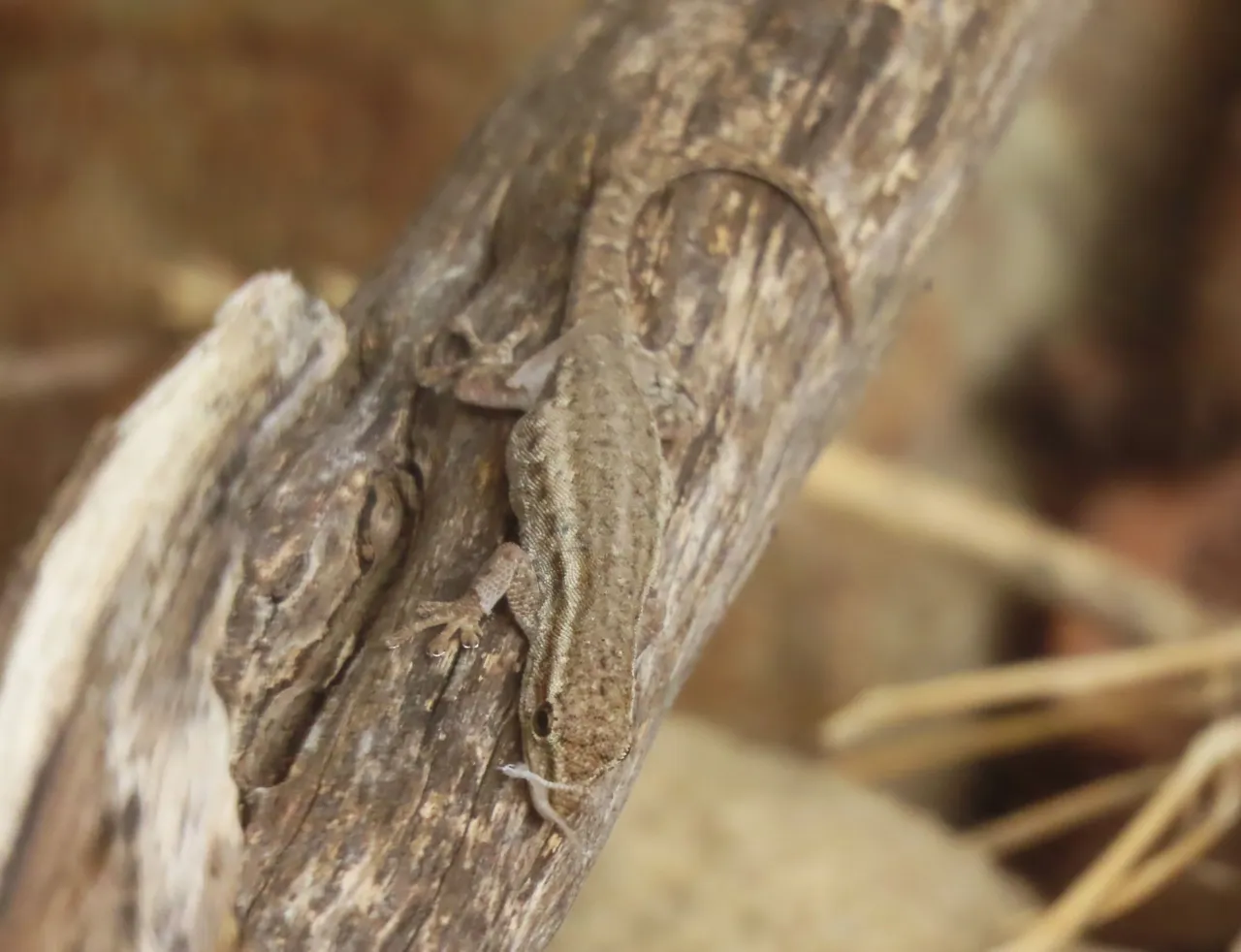
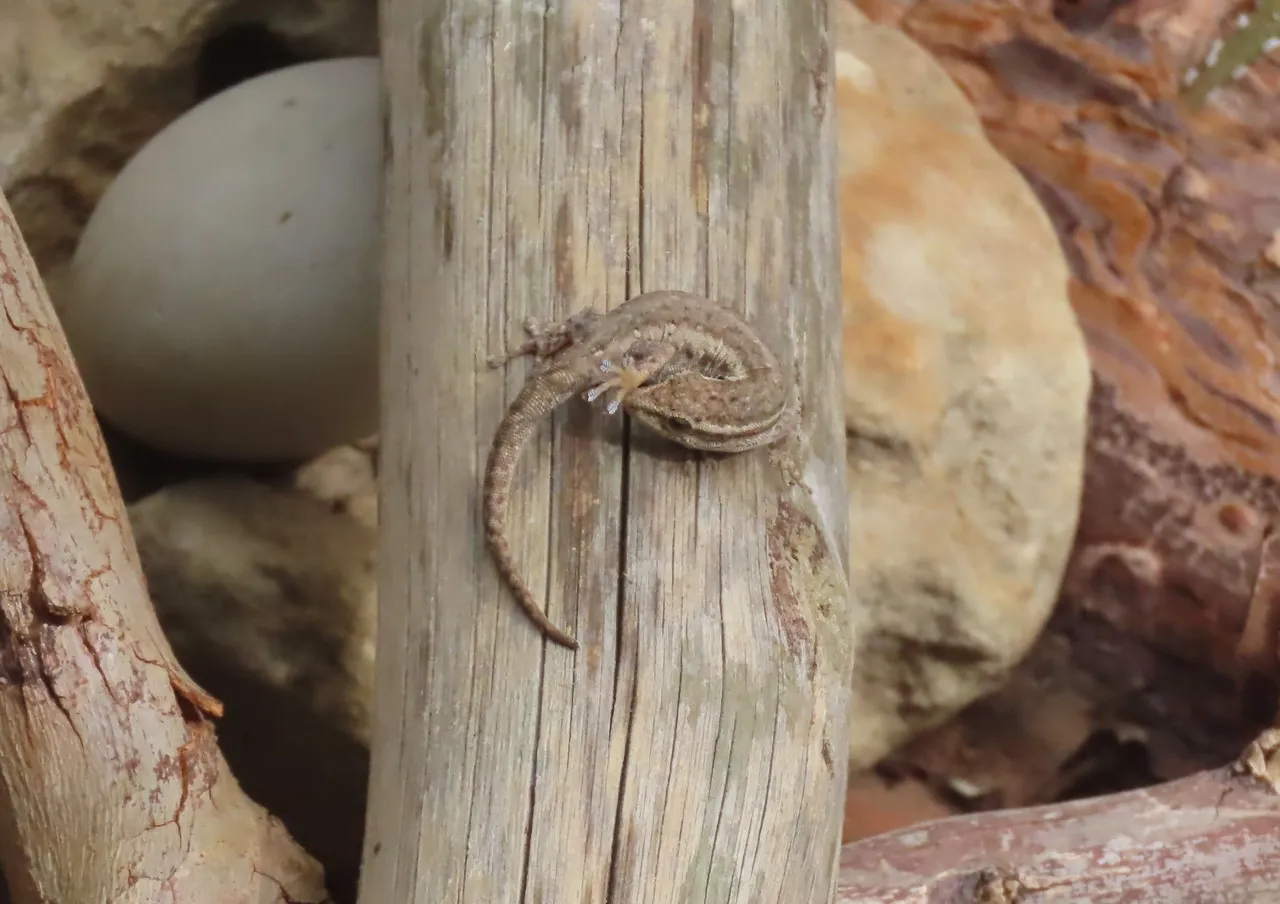
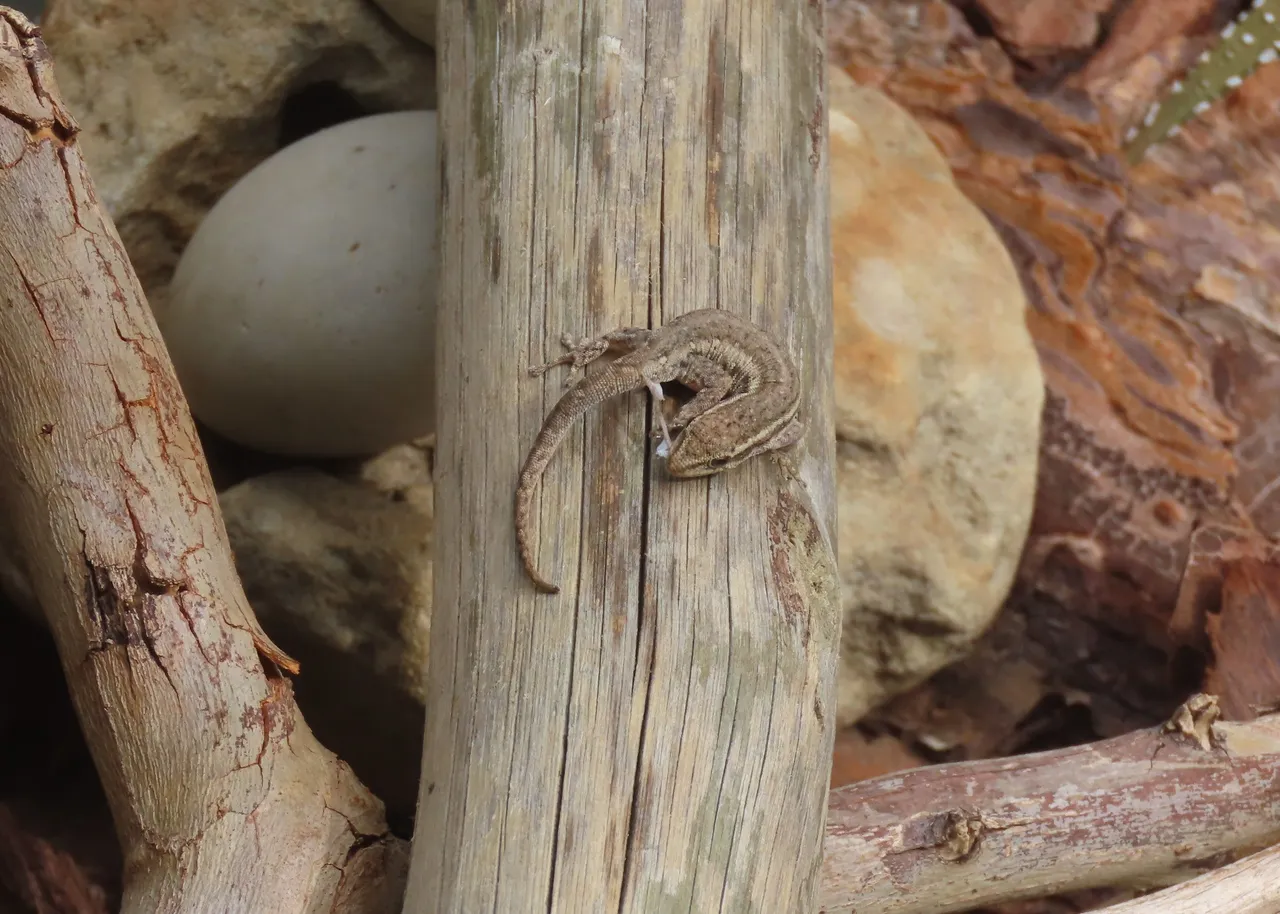
The new skin of the gecko at the top blends in perfectly with the pole they are sitting on, and the other lower little gecko still has to shed.
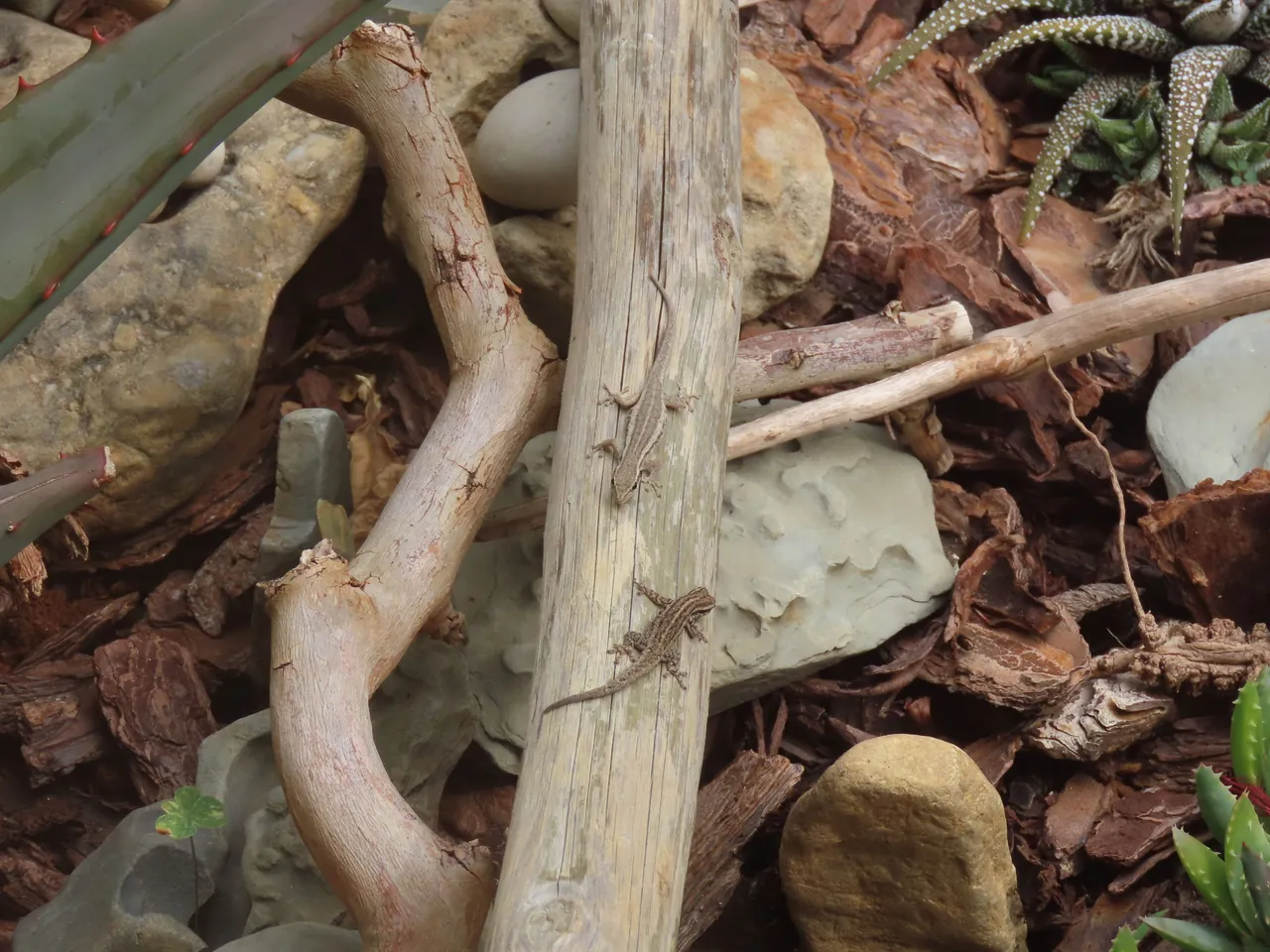
I swatted a fly and of course madam took the fly and placed it here on a pole in the garden, near the gecko that was shedding.
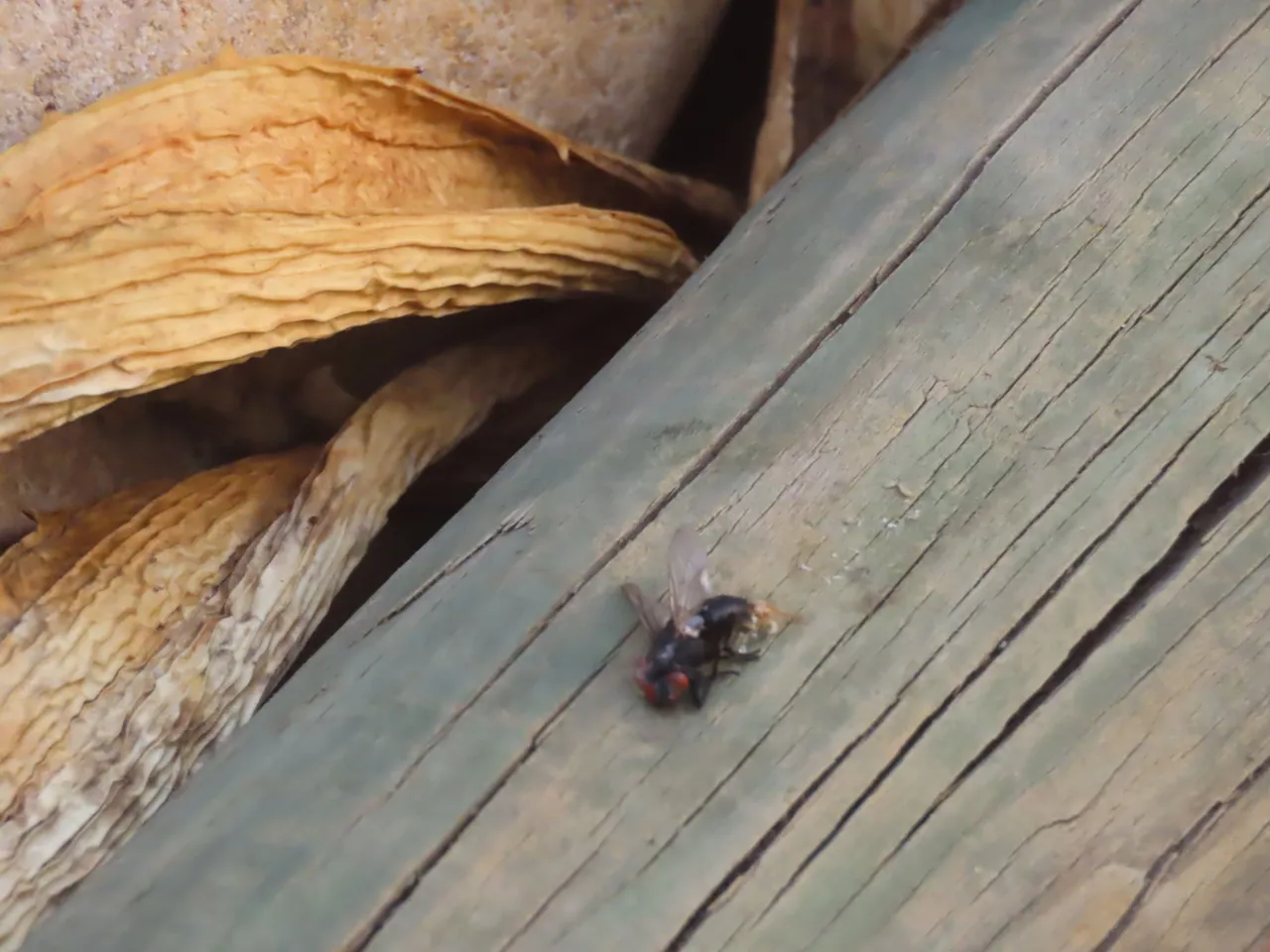
I think he is a male, as he also obliged by coming in to eat the fly:)
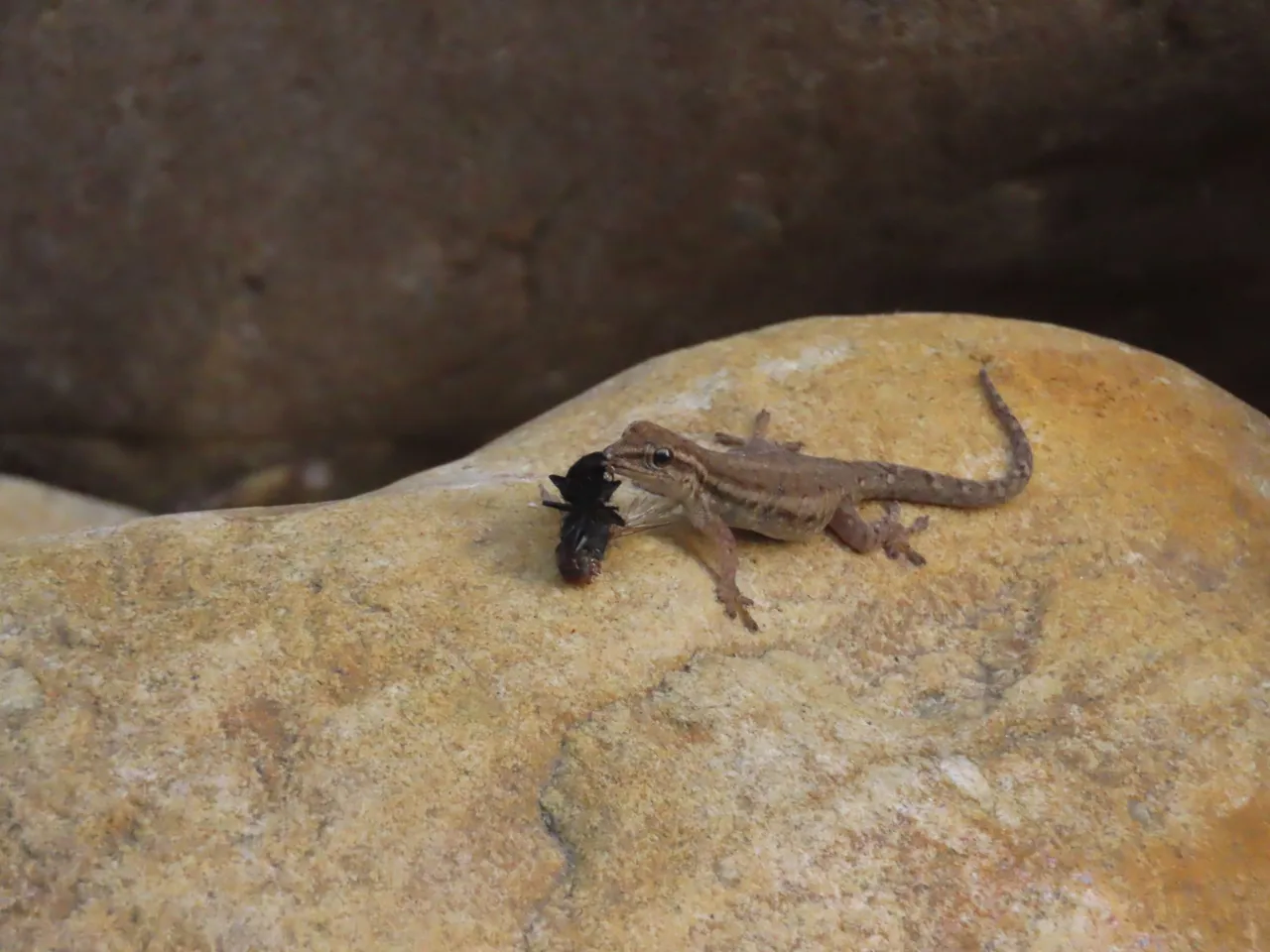
Some scary stats here below about our human impact on nature.
Although humans comprise only a minuscule proportion of the total living biomass on Earth, the human effect on nature is disproportionately large.
A 2020 study published in Nature found that anthropogenic mass (human-made materials) outweighs all living biomass on earth, with plastic alone exceeding the mass of all land and marine animals combined. And according to a 2021 study published in Frontiers in Forests and Global Change, only about 3% of the planet's terrestrial surface is ecologically and faunally intact, with a low human footprint and healthy populations of native animal species. Philip Cafaro, professor of philosophy at the School of Global Environmental Sustainability at Colorado State University, wrote in 2022 that "the cause of global biodiversity loss is clear: other species are being displaced by a rapidly growing human economy."
Just think about this, only about 3% of the planet's surface remains unspoiled by human hands.
I hope you have enjoyed the pictures.
Photos by Zac Smith-All Rights Reserved.
Camera: Canon Powershot SX70HS Bridge camera.
Thank you kindly for supporting this post.